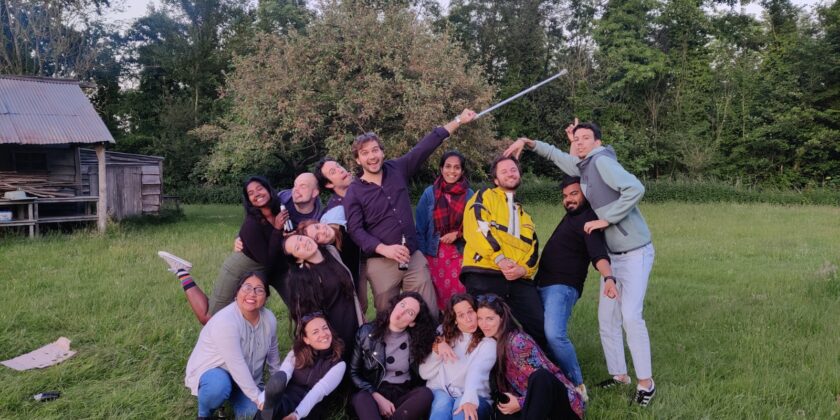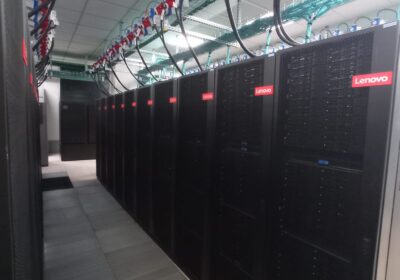It’s August 2022 and almost all the ESRs are now in the second half of their PhD. You might think that this makes us well navigated, but that’s not really how we feel. It is no news that doing a PhD is a bit like a rollercoaster, with so many ups and downs. There are times when you feel overwhelmed by all the tasks, deadlines, and time passing, while there are times when you feel very energetic and motivated to work on your project.
Disclaimer: every PhD journey is different from another.
Even within our group, although we are working on the same project and towards the same goal, our day-to-day work life is very different from one another, based on the area of research. Some of us spend most of their time working in a lab, others in front of the computer. As a result, each of us faces very different benefits and challenges on a daily basis.
When you start a PhD you have an idea of what you are going to face but you cannot know for sure. Even if we don’t feel very experienced, we are for sure able to identify something we might wanted to do differently or something we realised maybe too late, and we wish someone told us before. There are no universally good pieces of advice that can help you deal with this long trajectory, but I still tried to ask my colleagues what advice they wished they had as first year PhD students and this is a summary of what came out of it:
- Whatever will be, will be 🤷🏻♀️
Stressing too much is pointless and can make you even more unproductive. Don’t be too worried about the results or outputs of your research, it is just the learning phase so you should be consistent and enjoy the new learning process. Reading a lot, in the beginning, might feel unproductive but it is very rewarding in the long term. Start with the work of your supervisors. Critically reading and reflecting on it will get you to know their work and way of thinking in detail.
- Always be yourself, unless you can be a unicorn 🦄
Learn from older students, postdocs, mentors, and supervisors but don’t become their clone. Try to get inspired by developing your own, independent voice. Everyone’s journey is different, listen to the stories of their success and mistakes and learn from them, but don’t take their advice mindlessly.
- Supervisors are not always right 👨🏻🏫
Honestly here I think you need to be lucky. It is not from a few hours interview that you can understand if your supervisor is going to be good or bad. They can help you get a huge knowledge, they can be supportive and inspiring, but they can also be wrong, manipulative, micromanaging or absent. Remember to not be too assertive, you have to learn to say no and be open to a discussion, don’t agree blindly, keep your goals well clear in mind and be aware that there are organisations in your university that can help you in case you can’t handle the situation by yourself.
- Work-life balance is essential 💆🏻♀️
Treat your PhD as a job. Don’t work crazy hours, in your free time or during holidays. You are not obliged nor expected to do so. It’s not only bad for your own health and productivity, but also for others. You raise expectations on your colleagues to do the same who might not be able or willing to do so. Moreover, also supervisors could get a distorted vision of the amount of work that can be done in a normal 35-40 hours working week and they could require the same from other students which is completely unfair.
- Take notes straight away 📝
Being well organised is essential especially if you work in a lab. Keeping your notes up to date and noting down even the details can help you save a lot of time in the future. You will not need to repeat experiments and it will be helpful when you are looking back and putting together your experimental work results to draw conclusions for your thesis.
- Broaden your horizons 🌅
You can’t be excessive on this as your main focus should always be your project, but you should be open-minded, look and learn broader than your own lab and discipline, try to get the widest variety of skills, take advantage of the opportunities and connections that your university offers, apply for internships if you have the chance.
- Don’t compare yourself 💁🏻♀️
You will hear and most likely experience the “imposter syndrome”. It is normal but the more you can do to avoid it the better. I think that it mainly stems from the comparison you make, sometimes unintentionally, with your peers. It can take time to feel like an expert in your field, but you also might never feel like that. There will always be someone with more or better publications/awards/fundings. There will always be someone that looks like they know more than you do and sometimes it is true, other times they are just better at pretending. In any case, comparing yourself to others can become very toxic, so just focus on yourself.
Each stage of a PhD has its own difficulties. In the beginning, you stress because you hope you live up to get a PhD, you see this huge project all to be done and this long uphill journey in front of you. When you are towards the end you are concerned because you feel like there was not enough progress for the point you are at, you have deadlines, finish your experiments/research, articles to publish, and your thesis to write.
Even considering all this I think that none of the AgRefine ESRs regrets the choice of beginning this PhD. If we look back at when we started, we must acknowledge that there was a significant growth, both professional and personal.
I hope this blog can reach and be useful to first-year PhD students, but also to late-stage ones, as this can remind them of how far they got, and what they have achieved and learnt.
Good luck everyone!


 Artificial Intelligence and PhDing/>
Artificial Intelligence and PhDing/> 